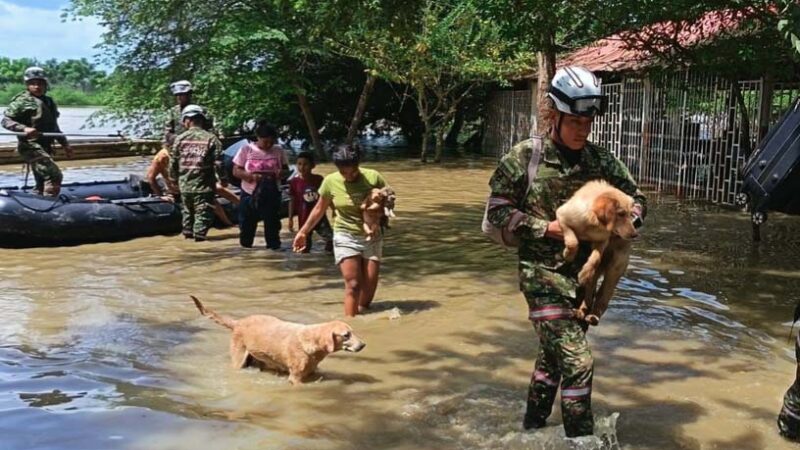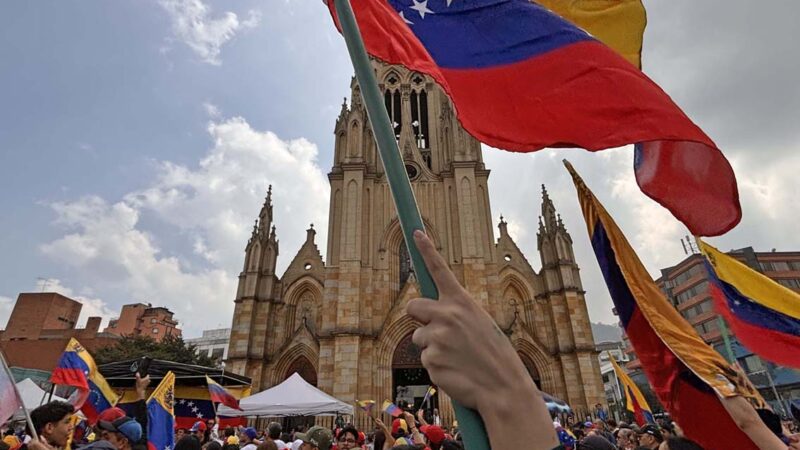
On World Day Against Trafficking in Persons, Colombia’s immigration authority reaffirmed its commitment to fighting human trafficking, unveiling new data and highlighting strengthened collaborations with law enforcement and international partners.
Under the directorate of Gloria Esperanza Arriero López, Migración Colombia outlined a series of efforts aimed at dismantling human trafficking networks and protecting vulnerable populations, particularly at high-transit locations like Bogotá’s El Dorado International Airport.
Central to the country’s strategy is a human rights-based approach that emphasizes education, prevention, and citizen participation. “Migración Colombia must position itself as a defender of human rights and protector of migrants in transit,” stated Arriero López during a press conference. “We are committed to strengthening our institutional capabilities and improving our processes to confront the challenges of evolving migration dynamics and to continue fighting human trafficking.”
According to the entity, over 1,000 educational and awareness-raising activities were carried out between 2024 and mid-2025 across various sectors – including healthcare, tourism, commerce, transportation, and education – reaching nearly 33,000 people nationwide. These workshops aim to equip citizens and frontline workers with tools to detect and report possible trafficking cases.
Migración Colombia’s Judicial Police Investigation Group, formed to combat transnational crimes such as migrant smuggling and human trafficking, has played a key role in the agency’s efforts. The specialized unit works closely with Colombia’s Attorney General’s Office, the Technical Investigation Corps (CTI), National Police, and international law enforcement bodies.
With coordination and citizen reports, the agency announced the rescue of 17 trafficking victims in countries including Brazil, Ecuador, Mexico, and the Dominican Republic since the beginning of 2024. Several criminal networks have also been dismantled and suspects brought to justice.
LibertApp: A Panic Button for Victims
One of Migración Colombia’s digital tools in the fight against trafficking is LibertApp, a mobile application designed to allow users to report suspected trafficking incidents or request immediate help using a built-in panic button. The app alerts the relevant authorities and provides quick access to assistance.
Available in Spanish, English, French, and Portuguese, LibertApp also functions offline and includes information on Colombian consulates abroad and guidance for victims.
“Technology can save lives,” the agency highlighted in a statement. “LibertApp is helping us bridge the gap between victims and the assistance they urgently need.”
Strategic Support from Canada
Migración Colombia also highlighted its ongoing partnership with Lawyers Without Borders Canada (Avocats sans Frontières Canada), which has helped build technical and operational capacity among Colombian migration officials.
The cooperation focuses on bolstering institutional responses to trafficking while emphasizing socioeconomic vulnerability and migrant rights protections. The partnership includes training sessions and the development of protocols that align with international human rights standards.
Arriero López emphasized the need for public engagement in tackling trafficking. “Everyone can be a potential victim – but everyone can also be part of the solution,” she said. “Through education and public awareness, we aim to empower communities to detect and report this crime.”
Colombia remains a key transit point for regional migration flows and is increasingly vulnerable to human trafficking networks operating across Latin America and beyond. Migración Colombia’s efforts reflect a broader attempt to integrate migration governance with law enforcement, social protection, and international cooperation.
While the challenges remain significant, officials say initiatives like LibertApp, expanded outreach, and multi-agency coordination are beginning to make an impact. “We are not just intercepting traffickers,” said Arriero López. “We are building a culture of prevention and protection that centers human dignity.”
Share this story
The City Paper Staff
View all posts by The City Paper Staff









